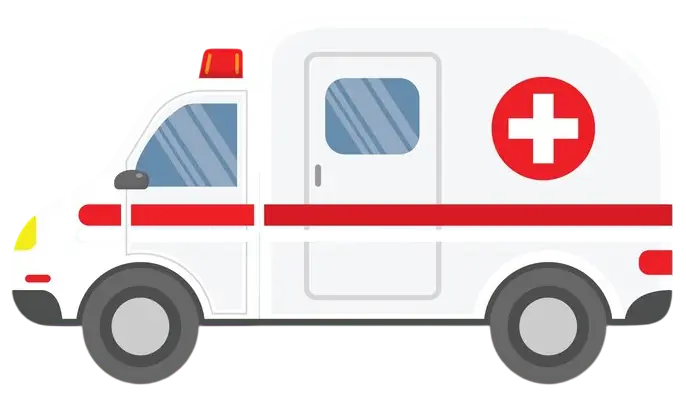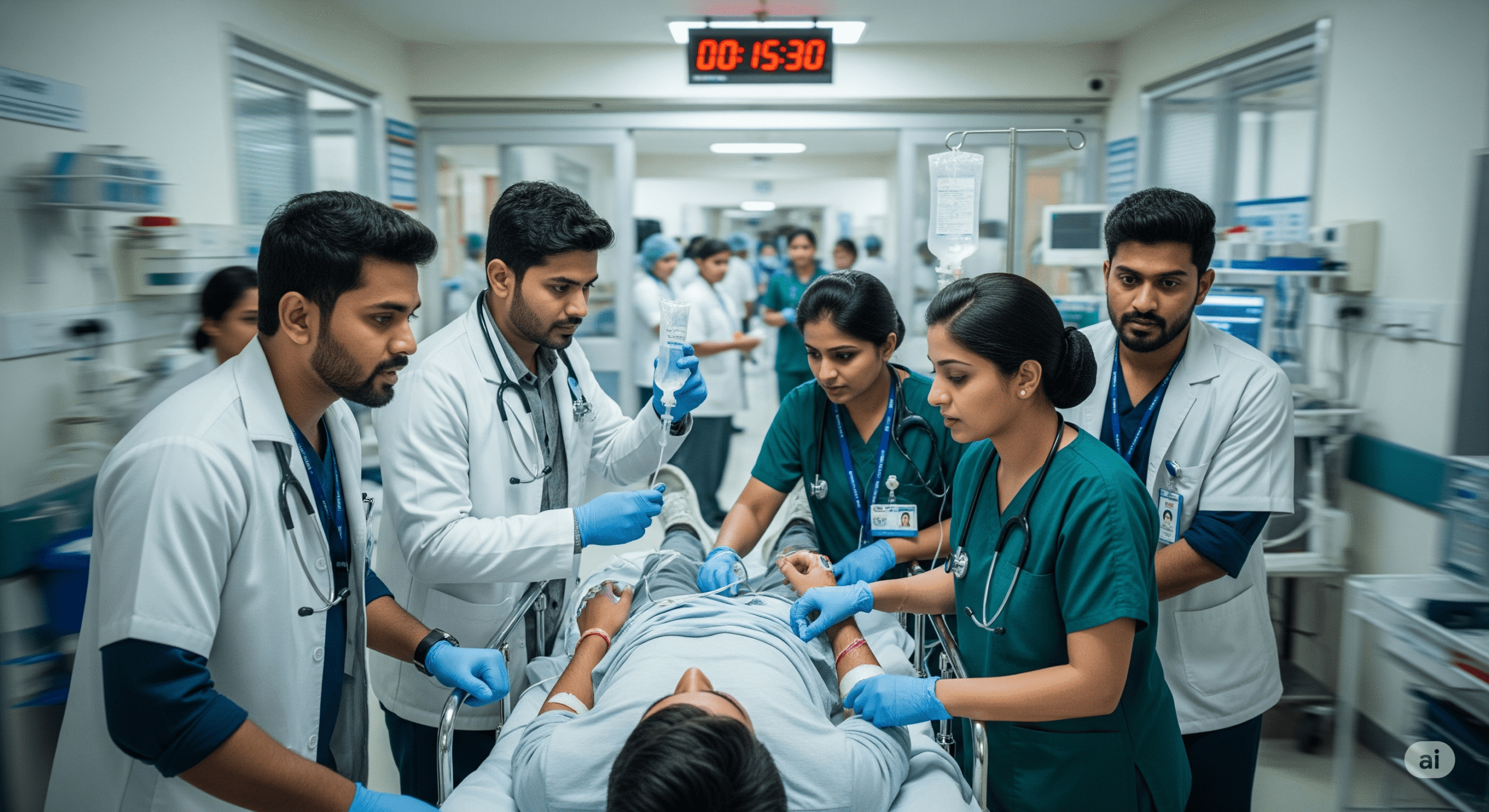Golden Hour in Trauma Care: Why Every Minute Counts
When someone’s seriously injured, those first few moments may feel like a blur. But they matter more than we can ever imagine. Doctors call it the “Golden Hour,” where getting the right care quickly can actually save a life. The “Golden Hour” refers to the first 60 minutes right after a serious accident or injury. It’s called golden because it’s the most critical window to save a life. Getting the right medical help during this time can stop things from getting worse and hugely improve the chances of survival of an injured person. It’s a race against time where every minute truly counts!
Why Golden Hour is Important in Emergency –
Need a reality check? One of the leading causes of death worldwide is trauma. Especially among people under 45, violent assaults, road accidents, industrial injuries, and falls can result in polytrauma, where multiple systems of the body are affected. In such situations, time is a key element.
In the first hour of the injury, the body might still be trying to make amends. As oxygen levels deplete, internal bleeding may begin, along with swelling and inflammation. The injury can get out of hand if it takes longer to get medical attention. Rapid care in the Golden Hour can:
- Stop internal bleeding
- Maintain oxygen supply to vital organs
- Stabilize blood pressure
- Prevent shock or brain damage
Every passing minute without intervention decreases the chances of recovery.
Golden Hour Trauma Protocol –
Trauma care teams follow a strict and highly organised Golden Hour Protocol:
- Primary Survey (ABCDE): Airway, Breathing, Circulation, Disability (neuro status), and Exposure (checking for other injuries).
- Resuscitation: Stabilising the patient with IV fluids, oxygen, and medications.
- Imaging & Diagnosis: Rapid CT, X-rays, or ultrasound to assess internal injuries.
- Definitive Care: Surgery or ICU care as needed.
This entire process is streamlined to be fast but accurate, because there’s no time to waste.
Benefits of Early Trauma Intervention –
Treating trauma during the Golden Hour isn’t just about survival; it’s about improving quality of life afterwards, too. Major benefits include:
- Reduced chances of complications like infections or organ failure
- Shorter hospital stays and quicker recovery
- Better long-term outcomes, including mobility and brain function
- Lower medical costs due to fewer surgeries or intensive treatments
How MedOne Hospital Responds During the Golden Hour –
At MedOne Hospital, the Golden Hour isn’t just a concept; it’s a practice embedded in every emergency care response. Our 24/7 emergency team is trained in advanced polytrauma care, and our hospital is equipped with rapid-response ambulances with life support and expert trauma surgeons always available on call. Ten minutes is our average response time – right from patient arrival to active treatment. It is this speed and accuracy that have helped us save countless lives and give many a second chance. Whether it’s a fall, a road accident, or a blunt force trauma, MedOne is fully equipped to act within the Golden Hour.
Conclusion:
Here’s something everyone should know. You don’t need to be a doctor to save a life during the Golden Hour. Just getting someone to the hospital quickly can make all the difference! You don’t have to worry about the legal implications of it all because you’ll be protected by the Good Samaritan Law. According to this law, if you help an accident or trauma victim and take them to the hospital to get immediate medical intervention, you will not be entitled to any legal burden or face police inquiry. Therefore, you’re ethically and legally protected. So if you’re in the Golden Hour, don’t hesitate to help, because at that moment, you’re part of the trauma care team too. You can help save a life!
FAQs
The Golden Hour is the first 60 minutes after a traumatic injury. Immediate medical care during this time significantly increases survival chances, reduces complications, and improves recovery outcomes. Every minute matters in preventing permanent damage or death.
Polytrauma management is the coordinated care of patients who have multiple serious injuries at the same time—like head trauma, fractures, internal bleeding, or chest injuries. These cases are complex and need a team of specialists, including trauma surgeons, emergency doctors, orthopaedicians, neurosurgeons, radiologists, and critical care experts. The goal is to stabilize the patient quickly, manage life-threatening conditions, and begin recovery as safely and efficiently as possible.
Yes, MedOne Hospital offers 24×7 emergency services with expert trauma teams, rapid-response ambulances, CT, MRI, and advanced facilities to treat critical injuries within the Golden Hour. The average treatment initiation time is under 10 minutes.
Injuries such as internal bleeding, head trauma, spinal injuries, fractures, and organ damage from accidents, falls, or violence benefit greatly from treatment within the Golden Hour, reducing the risk of permanent disability or death.
Early trauma care leads to faster recovery, fewer complications, shorter hospital stays, and better long-term outcomes. It also reduces treatment costs and prevents long-lasting physical or neurological damage.


